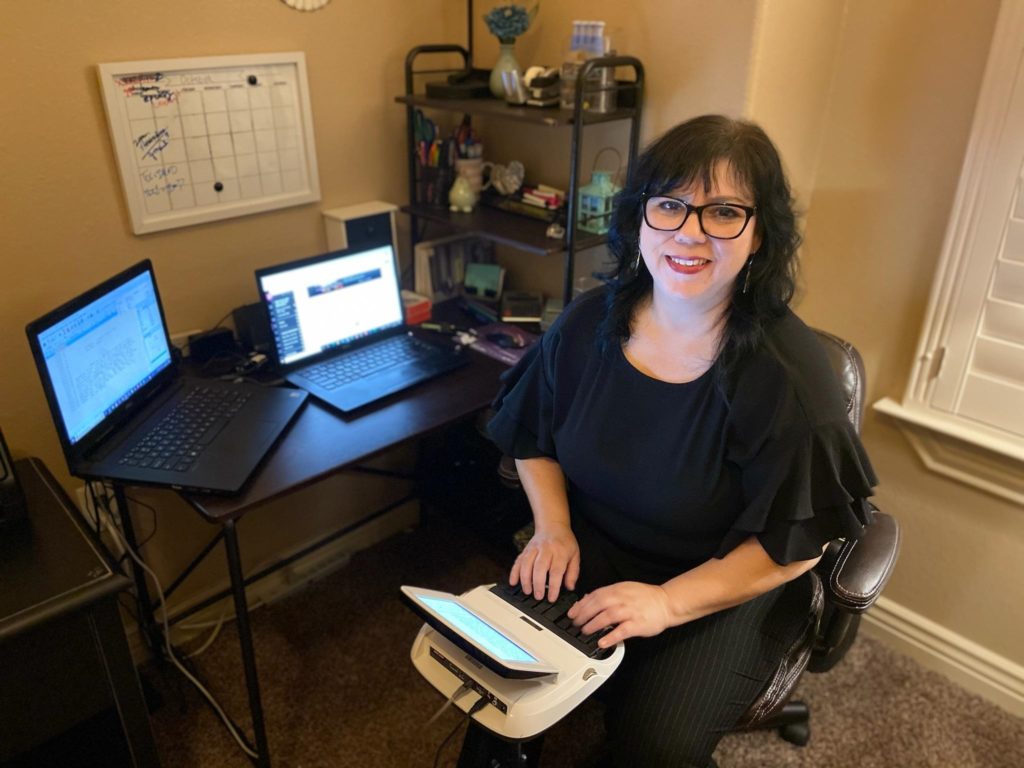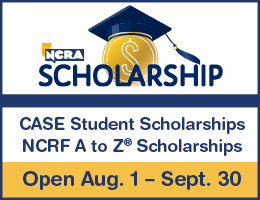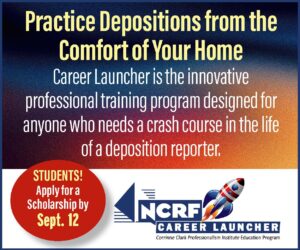
Earlier this month, the El Paso Herald-Post reported that a new program developed through a collaboration between the Socorro Independent School District’s (SISD) Career and Technical Education Department and the El Paso Community College (EPCC), El Paso, Texas, was offering students the pathway to earn an associate degree in court reporting by the time they graduate from high school. The program is offered to students attending the Americas High School Libertas Academy, one of the advanced academic programs offered by SISD. It is geared toward students who wish to pursue a career in government and public administration or law.
The JCR wanted to find out more about this venture and reached out to NCRA member Bertha A. Prieto, RPR, an official state court reporter from El Paso, and a court reporting instructor at EPCC, who was influential in helping to make the program a reality. Here’s what we learned:
JCR | Tell us a little about how this partnership came about. Did EPCC approach the Libertas Academy or vice versa?
BP | Our court reporting program has been very active in recruiting to area high schools. We attend job fairs, “Project Graduation” efforts, and have made presentations at middle schools. The Libertas Academy learned about our program and felt it was an excellent addition and fit to their existing programs which consist of law, government, and public administration. They contacted the Dual Credit program at EPCC where the meetings began.
JCR | Were there any challenges to overcome to make this partnership happen?
BP | Both institutions came together to provide a crosswalk to match the high school and college curricula. The next challenge fell on the Libertas Academy with the budget component to fund the purchase of stenographic machines, books, and online learning system subscriptions, to name a few. Both institutions were very excited about making this partnership happen, so everyone worked tirelessly to do so. This has been a stellar team effort!
JCR | When is this program officially launching or has it already?
BP | The program launched this past summer for the first cohort. The initial course began on May 26. The first and second cohort then partnered for the fall semester and their journey in machine shorthand commenced.
JCR | Where do the students take the class, at the high school or at EPCC?
BP | Students currently enrolled in the program complete EPCC courses online. Due to COVID-19 restrictions, the high school students are presently attending school virtually. Once they return to campus, they will remain in an online setting but will be monitored by a facilitator at the Libertas Academy.
JCR | Are you the only instructor?
BP | At this current time, I am the only full-time instructor at El Paso Community College; however, there are additional adjunct instructors who are available to assist with further courses within the program.
JCR | What has been the feedback about the program?
BP | We are halfway into the semester and students are actively participating and continue to be vested in their online learning. The challenge of mastering machine shorthand, coupled with virtual learning, are probably their greatest burden. Due to COVID-19 restrictions, these young students are faced with the difficulty of continuing to be self-motivated and self-disciplined at a time when they do not have face-to-face support among their peers. Nonetheless, their enthusiasm is quite inspiring, and they demonstrate a commitment to thriving in the court reporting program at the Libertas Academy.
JCR | What is the greatest benefit to this partnership?
BP | I believe the greatest benefit to this partnership is the one gained by the students. These students who are enrolled and successfully complete this program will have the opportunity to receive a certificate of completion or a two-year associate degree in court reporting when they graduate from high school. The Libertas Academy offers students the advantage of studying in the areas of law, government, and public administration. Court reporting is a branch of this academy wherein students will gain the skills and confidence to pursue this career at a young age.
JCR | How were funds raised to purchase steno machines?
BP | The following answer was provided by George Thomas, Director of Career Technical Education at the Socorro Independent School District:
We received a Texas CTE Summer grant that supported the machines for the first cohort of students. In the future, we will be purchasing using our CTE state-weighted funding. Each school district in the state of Texas receives weighted or additional funding of 1.35 percent for each full-time equivalent student to support the diverse needs of each program. The funding is spent on teacher and counselor salaries as well as supplies, equipment, technology, software, training, transportation, and contracted services. The students enrolled in our programs draw this state-weighted funding to support all our programs. Courses like speech, law enforcement, and business require less funding, and courses such as welding, electrical technology, and science courses require much more funding to support the needs. Court reporting is a program that will require more funding than it draws, but it all works out in the end.
JCR | How many students will be able to participate in the program at one time?
BP | According to Eduardo Hinojos, Libertas Academy Coordinator:
The goal is to have anywhere between 10 to 15 students begin the program every year as we work to gain a stronger foothold and presence in the region. We started two cohorts simultaneously this past summer. One is comprised of eight sophomore students while the other consists of nine freshmen students.
JCR | How is this being marketed to potential students?
BP | According to Hinojos:
Every fall semester, the Libertas Academy markets its programs to all 8th grade students in every one of the district’s 16 junior high schools. Given the latest addition of the court reporting program, in partnership with EPCC, we will not only present on the career opportunities court reporting offers but also give students an opportunity to hear testimonials from current students in the program. Additionally, we would like for students to see what the machines look like in action by having one of our students and instructors model a lesson. Our marketing plan will also showcase our in-house courtroom that was built specifically for our program. Here, students will be able to witness all facets of the courtroom, wherein they play the role of bailiff, court reporter, attorneys, jury, and judge.
JCR | How long have you worked as a court reporter?
BP | I have worked as a reporter for the past 23 years. Most of my career has been as an official court reporter, though I have also had the opportunity to work as a freelance reporter and court reporting instructor. My aspiration, however, is to one day work as a realtime captioner.
JCR | How did you learn about this profession?
BP | My introduction to this field dated back to when I was in high school. My sister’s friend was a court reporter in the Dallas area, and she felt this would be a good fit for me. In high school, I learned to write shorthand, believing it would help me in this profession, but little did I know that the actual skill would entail learning machine shorthand, a skill I am absolutely proud of.
JCR | What court reporting program did you attend?
BP | I am honored to say that I attended the very same school where I currently teach court reporting, El Paso Community College.
JCR | What has been the greatest aspect of this career for you?
BP | Where should I begin? Being able to work both as an official court reporter and instructor have given me the opportunity to embrace two disciplines for which I am equally passionate about. This profession has lent itself to an array of career opportunities. I have had the benefit of working in various spectrums within the judicial system, as well as having the privilege of crossing over to an educational setting where I have taught the art of court reporting for a number of years.
JCR | What would you say to others thinking about a career in court reporting or captioning?
BP | To any person who is interested in pursuing a career as a court reporter or captioner, I would tell them to leap into this career. The benefits outweigh the challenges of learning this skill. It is a profession that is highly respected by a community where professionalism and ethics are fundamental for safeguarding and preserving the spoken word.
Bertha A. Prieto can be reached at bprieto@epcounty.com.








